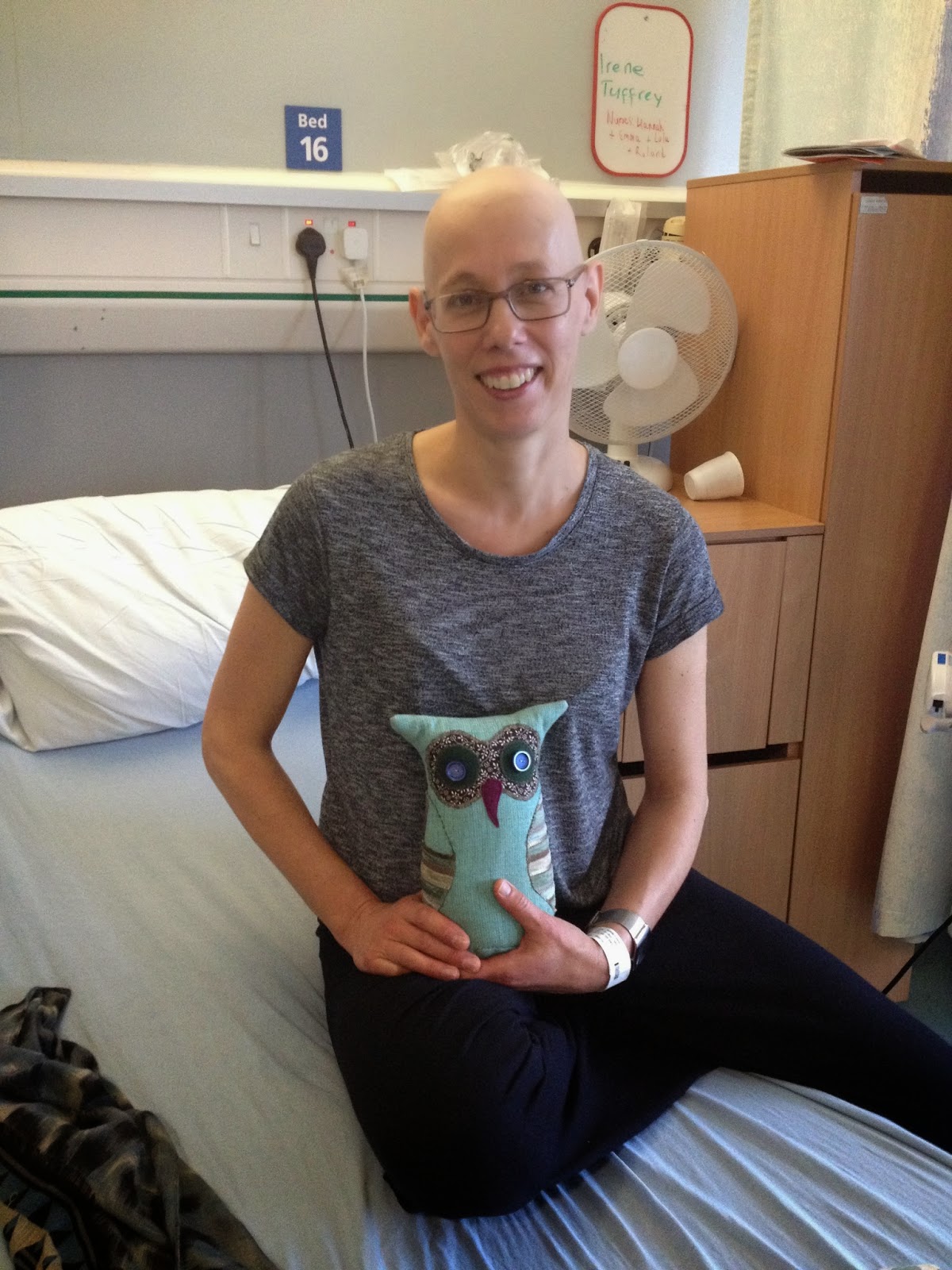 |
| The chemotherapy chair |
Yesterday, I found myself back on the chemo ward.
This is how it happened.
Despite working as a researcher at a university that sits in the hospital building, I haven't had much to do with the cancer wards before. But last month I was contacted by a film maker who wanted make a short educational film about cancer and learning disability for Macmillan Cancer Support. She was looking for someone with learning disabilities who could talk about what it's like to have cancer. Almost inevitably, she had found her way to my door (not many people specialise in this area).
"You want Amanda!" I said.
I have told you about Amanda before (long time ago, but worth reading again: she is a rather extraordinary woman). Amanda has learning disabilities and has recovered from cancer. The whole rigmarole: surgery, chemotherapy, radiotherapy.
Last week, we all squeezed into Amanda's flat. Standing room only. As always, she spoke eloquently of her experiences, remembering them vividly, even though it was over a decade ago.
 |
| Filming at Amanda's flat |
Most of Amanda's cancer experiences could have been mine.
It made me cry.
In fact, during my chemotherapy treatment I'd been wondering how on earth she managed to get through it all. I needed an iron will to return to the dreaded chemo chair again and again. How much harder for people who may find it difficult to understand why they need to sit in that chair and be poisoned.
Amanda not only understood this, but she had the necessary iron will. I went to talk with her a few hours before the film crew arrived, because I wanted to know more.
Yet again, Amanda spoke of her mother who had died of cancer when she was young.
"I know it sounds stupid," she said, "but when it was really hard, I talked to my mother. I felt that she was there with me."
Only now do I truly understand that this is far from stupid, and far from strange. My mother, I told Amanda, was there too, at my bedside in my darkest hours, even though (or perhaps because?) she was dead.
Next up was me.
The film crew came to my office yesterday. I was willing to be interviewed (although much less of a natural screen presence then Amanda, which you will certainly agree with once the film comes out). But I insisted that there should also be a "real" nurse in the film, on a real hospital ward.
Which nurse? Which ward? I rang the hospital's learning disability nurse specialist. What would he recommend?
What he recommended was Lovely Nurse on the chemotherapy ward.
So there I was, last week, back in the VIP lounge to find Lovely Nurse and ask her if she was willing. I walked in with my new curly locks and my professional badge, feeling much happier being Staff rather than Patient. Would anyone recognise me?
Saviour Nurse did. Immediately. She looked up from what she was doing and rushed over, hugging me: "Ooohh, how good to see you, how nice of you to come back here!"
I was impressed. Different looks, different context, and it's six months since I had my last shot of chemotherapy.
Most other nurses did a double take. I could see them thinking... I know that woman from somewhere, but who is she? But it didn't take them long to figure it out. This is an excellent ward with excellent nurses. Lovely Nurse herself remembered me too. She treated me once, when I had to rush in with a suspected bladder infection.
And yes, she was more than happy to be filmed.
It was a rather different arrival-on-the-chemo-ward yesterday.
Instead of turning up with a supportive husband/daughter/friend, an undemanding magazine and a comfortable T-shirt, I came with a camera man, a film director and side kick, a colleague/actor/friend and a confident mascara-and-lipstick smile. It was only Amanda and Lovely Nurse that needed filming, so I cheered them on from the side lines.
Knowing the ward had its uses. When I spotted that there was a free corner in the VIP lounge (two patients in adjacent chairs had just left), I knew other patients might be waiting but there was a possible gap. Could we film there perhaps?
We could.
 |
| Amanda and Lovely Nurse in the VIP lounge |
"Fine!" I grinned. "Much nicer this time round. No problem at all."
So I thought. But then I had to rush into the Ladies with a sudden bout of nausea, retching into the toilet bowl.
"This is bringing back memories," Amanda agreed. "I feel... not upset, but strange. I have butterflies in my stomach."
Clearly, a cancer year is not easily erased. We enjoyed the experience, but afterwards we needed to sit down together with a cup of tea.
Even now, looking at that chair in the photograph at the top of this blog post, I feel faintly sick.
The only thing to do, we knew, was to laugh about it all. We had both brought our chemo wigs, just for the fun of it. We thought we might put it on a PowerPoint slide next time we give a talk about cancer together.
So here we are. Onwards and upwards.
 |
| Don't we look fetching in our wigs! |
 |
| Less fetching perhaps in each other's wig... |










